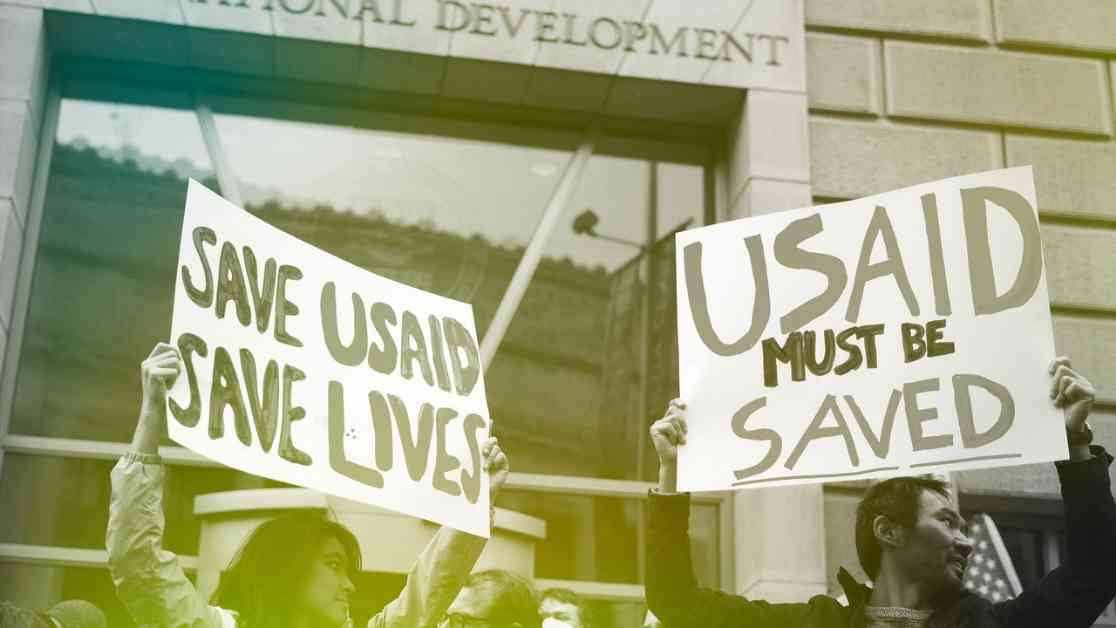For nearly a quarter of a century, William Easterly, a respected free-market economist at New York University, has been a vocal critic of foreign aid programs. In his insightful 2001 book, “The Elusive Quest for Growth: Economists’ Adventures and Misadventures in the Tropics,” Easterly pointed out that despite decades of development assistance from the West, growth and poverty alleviation in many impoverished nations remained elusive. He also highlighted how U.S. aid efforts often bolstered autocratic leaders, such as Meles Zenawi, Ethiopia’s Prime Minister from 1995 to 2012, who was once labeled “the man who tried to make dictatorship acceptable” by The Economist. Easterly’s 2014 book further emphasized the problematic nature of aid, stating that the development right of dictators had replaced the divine right of kings.
The United States Agency for International Development (USAID), established in the 1960s by President John F. Kennedy, is the world’s largest bilateral aid agency, receiving over forty billion dollars in funding from Congress in 2023. However, on his first day in office, former President Donald Trump issued an executive order halting most aid programs, citing concerns that the foreign aid industry did not align with American values. Subsequently, Elon Musk and his Department of Government Efficiency team began dismantling USAID, shutting down its headquarters, disabling its website, and placing many employees on leave. Musk even went as far as to publicly state, “We spent the weekend feeding USAID into the wood chipper.”
When Easterly was queried about these drastic actions, he expressed deep concern, denouncing the approach taken by Musk and Trump as illegal and undemocratic. Despite his own reservations about traditional aid programs, Easterly could not support such abrupt and forceful measures. The Administration’s plan to reduce USAID’s staff from over ten thousand to about six hundred, with the State Department assuming some responsibilities, raised questions about the transition process. Easterly drew parallels between this sudden change and the failed economic “shock therapy” attempted in post-Soviet Russia, stressing the need for a gradual shift rather than an abrupt shutdown.
While acknowledging the shortcomings of many aid initiatives, Easterly acknowledged that some programs, particularly those focused on public health, had been successful. Reports emerged of disruptions in crucial health services in Africa, such as HIV treatment programs funded by the President’s Emergency Plan for AIDS Relief (PEPFAR), a highly regarded initiative launched by former President George W. Bush in 2003. The suspension of PEPFAR and other health interventions in impoverished nations, including programs addressing malaria, cholera, and cancer screening, highlighted the immediate impact of the aid cuts.
### Esther Duflo’s Insights on the Aid Landscape
Esther Duflo, an esteemed economist at M.I.T. and co-founder of the Abdul Latif Jameel Poverty Action Lab (J-PAL), shared her perspective on the abrupt suspension of foreign assistance programs under the Trump administration. Duflo, who was awarded the Nobel Prize in Economics in 2019 for her work on poverty alleviation, emphasized the importance of gradual transitions in aid programs to ensure continuity and effectiveness. While established organizations like J-PAL could seek alternative funding sources, smaller entities heavily reliant on U.S. government support faced significant challenges and uncertainties in continuing their operations.
### Uncertainty and Concerns for Global Aid Efforts
Clemence Landers, a senior policy fellow at the Center for Global Development, recounted the pivotal role USAID played in post-conflict Liberia, illustrating the tangible impact of foreign assistance on rebuilding nations in crisis. Landers underscored the unique position of the United States in providing humanitarian aid and disaster relief worldwide, expressing concerns about the void that would be left by a potential permanent withdrawal of U.S. leadership in this crucial area. As other Western nations scaled back aid budgets and faced internal constraints, the prospect of China emerging as a key player in international aid efforts raised significant geopolitical implications.
As debates surrounding aid targeting, allocation, and delivery continued, Landers and other experts emphasized the need for comprehensive reforms in the aid system. While acknowledging the room for improvement, particularly in directing aid to the neediest countries and empowering local organizations, the abrupt dismantling of aid programs without a thoughtful transition plan raised broader questions about democratic processes and global responsibilities. The long-term consequences of these actions on the world’s most vulnerable populations and the credibility of the U.S. as a global leader remain uncertain, underscoring the critical importance of thoughtful and inclusive decision-making in aid policy.
Ultimately, the actions taken by Musk and Trump to dismantle USAID and curtail foreign assistance programs not only disrupted vital aid efforts but also raised fundamental questions about the democratic process and the role of the United States in shaping global development agendas. As experts and policymakers grapple with the aftermath of these sweeping changes, the need for strategic, collaborative, and sustainable approaches to aid provision becomes more pressing than ever.












